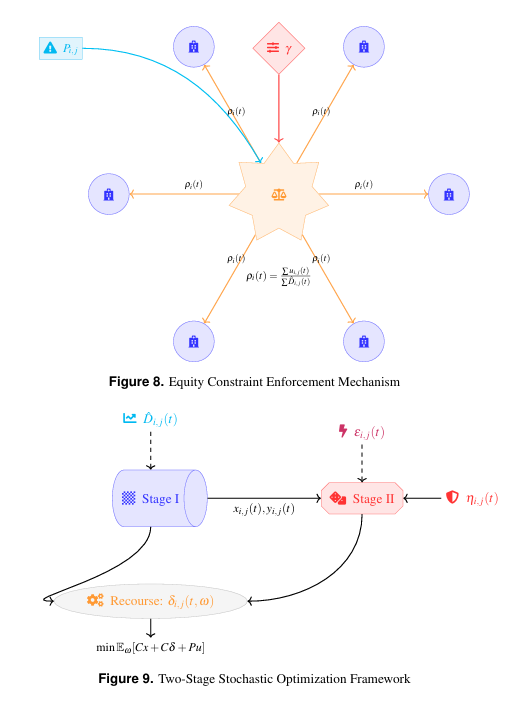Optimizing Healthcare Resource Allocation for Operational Efficiency and Cost Reduction Using Real-Time Analytics
Keywords:
analytics integration, healthcare resource optimization, hospital operations, real-time data, regional coordination, resource allocation, theoretical modelingAbstract
Healthcare systems are constantly struggling to balance managing limited resources to achieve high levels of operational effectiveness and controlling costs. This research proposes a theoretical model for real-time optimization of resource allocation across a network of regional health facilities using real-time analytics. It fills the gap between rigid resource planning and the need for agile, data-driven reactions and provides a systematic approach for regional resource coordination. The model integrates hospital operations' real-time data streams into a dynamic decision space. A mathematical formulation based on optimization is built to assign critical resources – medical staff, hospital beds, and critical equipment – in line with instantaneous demand and projected short-term need. The objective is to minimize overall operating costs while satisfying service demands and reacting to fluctuations in patient volume and acuity. The proposed framework is supported by a real-time analytics architecture that captures and processes real-time data on patient flow, resource usage, and system constraints. An optimization engine uses this data to update allocation decisions in real-time, enabling an adaptive and responsive approach to managing resources. The approach is notionally modest, with emphasis placed on structural integration of analytics and optimisation rather than exaggerated claims of performance. Potential uses are outlined to illustrate how the model can enhance efficiency, reduce waiting times, and restrict wasteful expenditure in theory. As a purely theoretical piece of work, this research highlights the opportunity and the limits of real-time data-driven optimization to control healthcare resources.

